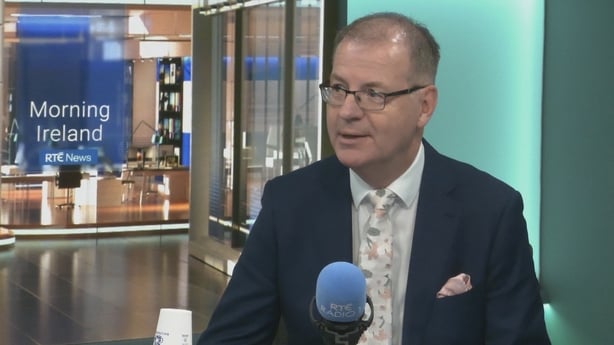The head of the electoral body, An Coimisún Toghcháin, has acknowledged that the electoral register is "not as accurate as it should be" and that there could be as many as 500,000 people who should not be on it.
The national turnout for Election 24 was down to 59.7%, marking the lowest turnout since 1923, the last time the number was below 60%.
The turnout percentage is calculated based on the registered number of potential voters and An Coimisún Toghcháin has warned that the accuracy of that register will soon be reassessed.
We need your consent to load this flourish contentWe use flourish to manage extra content that can set cookies on your device and collect data about your activity. Please review their details and accept them to load the content.Manage Preferences
However, Art O'Leary - the chief executive of the commission - outlined that the register contains many duplicates, as well as the names of people who have died.
Speaking on RTÉ's Morning Ireland, Mr O’Leary said the headline turnout figure "is a very blunt measure by which to judge the performance ... or the engagement of people generally with democracy".
"The electoral register we know is not as complete or as accurate as it should be ... there could be 500,000 people on the register who shouldn't be on it."
We need your consent to load this rte-player contentWe use rte-player to manage extra content that can set cookies on your device and collect data about your activity. Please review their details and accept them to load the content.Manage Preferences
"So, these are duplicates that exist, or people who have passed away, etc. So, I don't know if that figure is correct or not, but it sounds to me as if it's about right," He added.
"And if that was the case, then our turnout was probably 10% more than we think it was."
The electoral register is not a single, unified database, according to Mr O'Leary. It is in fact 31 separate registers run by each local authority independently from one another.
'No evidence of voter fraud'
Mr O'Leary said that there is a "longer term project" currently under way to clean up the electoral register and create a centralised database.
"There is a project under way at the moment to create a single database using dates of birth and Eircodes, which will allow us to identify duplicates, but it's not going to be fixed tomorrow or the day after," he said.

Following reports of voters receiving polling cards for people who are deceased or no longer live at their address, Mr O'Leary asked people to return them to the appropriate local authority with a note flagging what happened.
"This will help us with the completeness and accuracy of the register," he said.
Mr O'Leary said that having these problems with the register does open the possibility of voter fraud but there is no evidence of that.
"It's certainly a possibility. We have no evidence of fraud, to be honest, and this is a good thing as well. And if you have a polling card in Dublin and one in Cork, you'd have to go to an awful lot of bother then to drive to Cork to go and vote there as well.
He added: "So, if it happens then it is probably immaterial, I suspect. But like I said, we have no evidence of that."
We need your consent to load this rte-player contentWe use rte-player to manage extra content that can set cookies on your device and collect data about your activity. Please review their details and accept them to load the content.Manage Preferences

